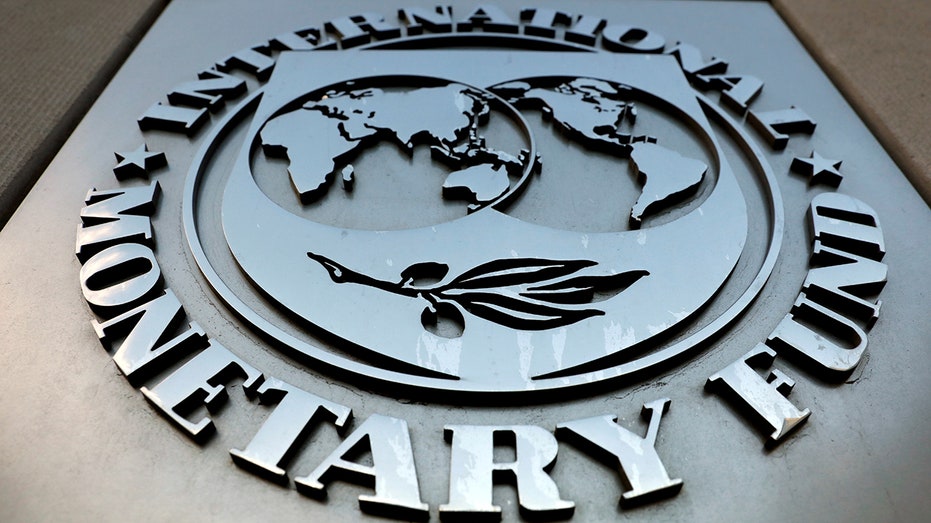Pacer ETFs Distributors President Sean O’Hara previews earnings and discusses how to play A.I. and tech.
The International Monetary Fund (IMF) is sounding the alarm that generative artificial intelligence could impact a significant share of jobs worldwide, and warned the technology’s disruption of the global labor market could exacerbate inequality and fuel further social unrest.
The organization, which monitors the global economy and financial system, is urging countries to implement policies to help ensure responsible adoption of the technology.

The International Monetary Fund (IMF) logo is seen outside the headquarters building in Washington, D.C. The IMF is warning that generative AI will impact roughly 40% of jobs worldwide. (REUTERS/Yuri Gripas/File Photo / Reuters Photos)
In a blog post on Sunday, the IMF pointed to a staff analysis of Gen-AI’s impact on the future of work, which estimates Gen-AI will affect 40% of jobs worldwide, hitting 60% of those in advanced economies like the U.S., 40% in emerging markets and 26% in developing nations.
The study determined AI will have the most immediate impact on larger economies with highly skilled workers, whose positions are at the greatest threat of replacement. It found roughly half the exposed jobs in developed nations would likely be complemented by AI because it would enhance their roles and make them more efficient. The remaining half exposed to AI are under threat of falling in lower demand or even being eliminated in some instances, the report said.
JAMIE DIMON WEIGHS IN ON AI, SAYS ONLY ‘GOD KNOWS’ WHAT THE TECH WILL DO FOR HUMANITY
Although countries with emerging and developing markets will face less disruption from AI in the short term, the IMF warned that those nations’ lack of infrastructure and skilled workforces enhances the risk that AI will deepen inequality among economies.

The IMF released an analysis of the impact Gen-AI could have on the global workforce, warning the technology is set to exacerbate inequality. (iStock / iStock)
The report raised further concerns that AI could broaden inequalities within nations as workers who embrace AI see their incomes rise, while those who shun it will fall behind. It points out that older workers, who are more hesitant to embrace AI, are more vulnerable than younger workers.
DESPITE THE HYPE OVER GENERATIVE AI, MOST CEOS ARE TAKING A ‘WAIT AND SEE’ APPROACH
“In most scenarios, AI will likely worsen overall inequality, a troubling trend that policymakers must proactively address to prevent the technology from further stoking social tensions,” the IMF’s blog post reads. “It is crucial for countries to establish comprehensive social safety nets and offer retraining programs for vulnerable workers. In doing so, we can make the AI transition more inclusive, protecting livelihoods and curbing inequality.”
Consumer Technology Association CEO Gary Shapiro breaks down the impact of artificial intellifence on ‘The Claman Countdown.’
GET FOX BUSINESS ON THE GO BY CLICKING HERE
In its report, the IMF recommends advanced and emerging nations develop regulatory frameworks to optimize the benefits of AI responsibly, while advising low-income countries to boost investments in infrastructure and workforce training to help them catch up.



